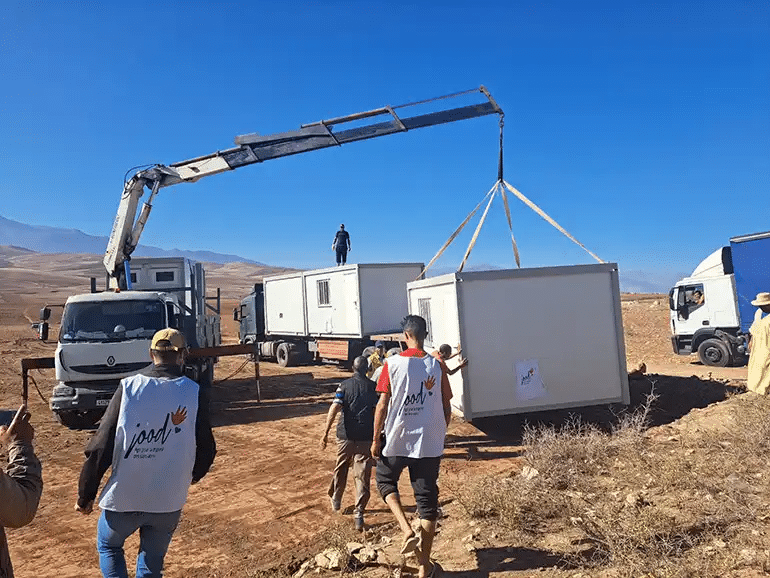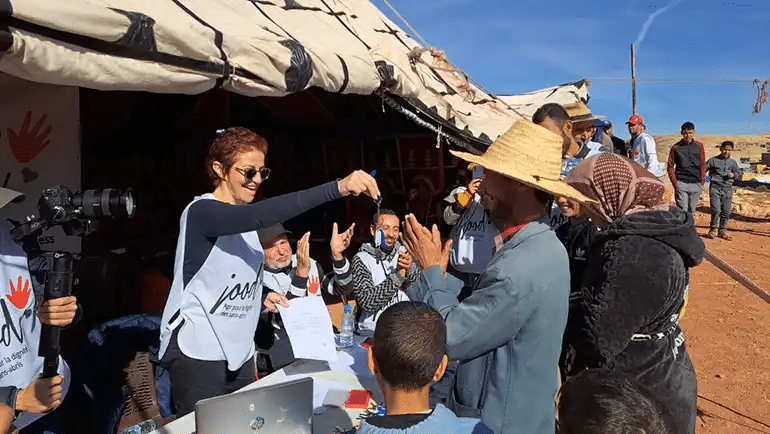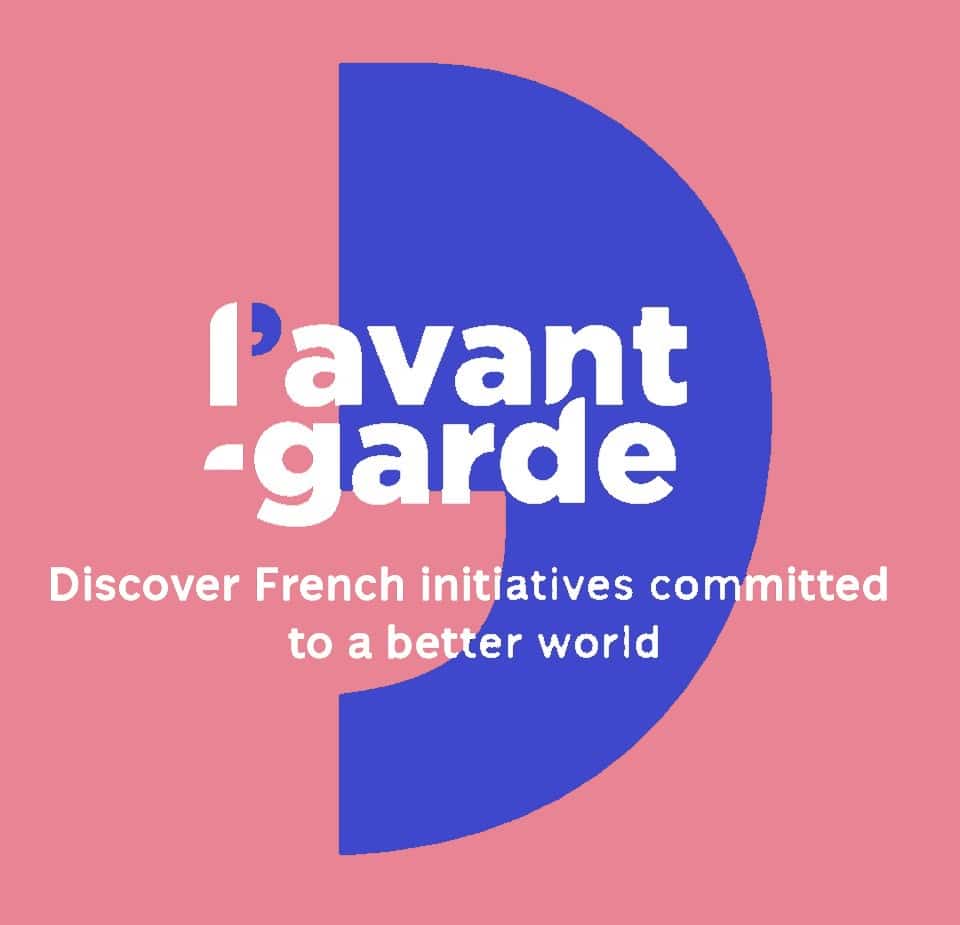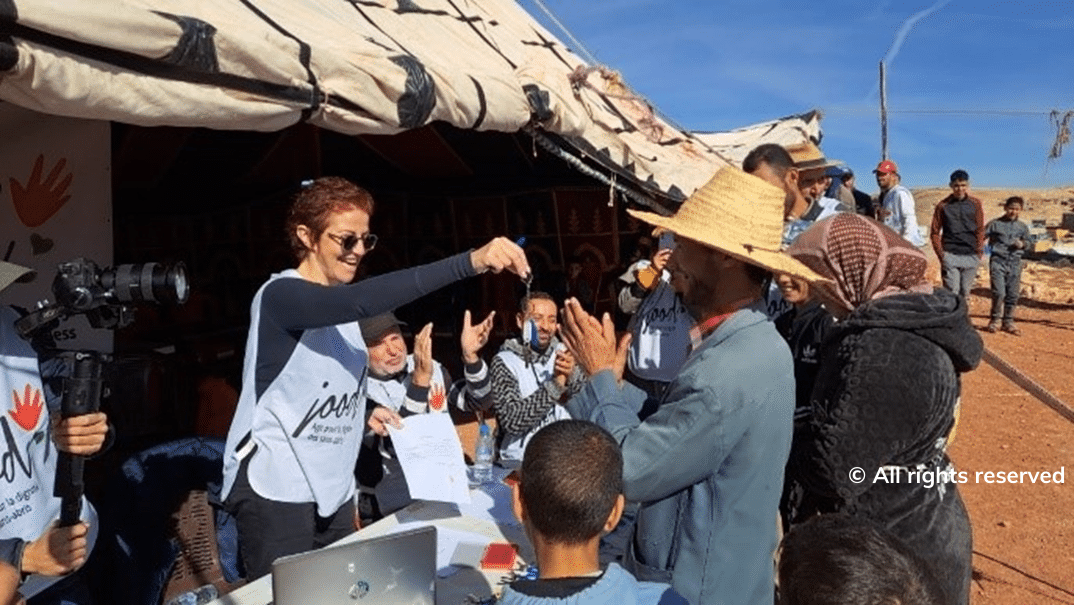Sheltering Disaster Victims and Supporting Reconstruction
The current priority is to adapt shelters for the winter period. “The majority of disaster victims have been sheltered in tents, containers or marquees, but with the onset of winter and snow, these solutions remain temporary. That’s why we’re actively working with architects and engineers to find suitable solutions for reinforcing and shoring up the relatively unscathed houses, so that the inhabitants can settle back in complete safety,” explained Karine Meaux, head of emergencies at Fondation de France. The NGO Jood, deeply involved in the issue of rehousing, has, for example, installed 30 prefabricated houses and 30 sanitary blocks, with showers, washbasins, and toilets, in the villages of Moulay Brahim, Talat N’Yaaqoub, Imgdal, and Ljoukak.
“Concerning reconstruction and rehabilitation, partnerships are currently being finalized to provide technical expertise in risk-adapted construction and strengthen the know-how of Moroccan craftsmen,” added Karine Meaux. Fondation de France relies notably on CRATERRE, the International Center for Earthen Construction, an expert in post-natural disaster reconstruction.

Supporting the Most Vulnerable
A number of local organizations are also providing local support to the most vulnerable earthquake victims. In addition to providing essential material aid, they are also providing psychological support to the affected populations, to prevent and treat post-traumatic symptoms that may emerge later. This mission has been entrusted, among others, to the Terra Psy association which, thanks to its mobile teams, travels around the villages to offer psychological support and referral solutions to people suffering from psycho-traumatic disorders.
The Association de l’Enfance Handicapée in the Taroudant region is helping the seriously injured and disabled victims of the earthquake, by providing medical equipment and meeting their care, re-education, and rehabilitation needs.
For the Nissae Souss association’s part, it welcomes women and their children to its shelter, providing them with clothing, meals, hygiene products, medicines, school supplies, and psychological support. The Féminine Elkhir organization has set up a mobile listening center offering psychological support, as well as legal advice and follow-up on administrative files. The project also encourages the creation of agricultural and craft cooperatives and income-generating activities (farm work, sewing, etc.) to help earthquake victims regain economic independence.

Contributing to Economic Recovery
Contributing to economic recovery is one of Fondation de France’s priorities when it comes to helping people gradually return to normal life. This can involve helping rebuild shops, farm buildings and schools. The AgriSud association, for example, helps disadvantaged populations set up fair, viable and ecological agricultural projects.
While more than 500 schools have been destroyed, the Al Jisr association is building 9 modular structures to replace the destroyed classrooms in the province of Chichaoua, to accommodate the children of this disaster-stricken region.
In the province of Taroudant, heavily impacted by the earthquake, a consortium of six Moroccan and French organizations, led by Migrations & Development, is working with local players to rebuild health and education infrastructures and revitalize the economy of the affected areas, by supporting local agriculture.




